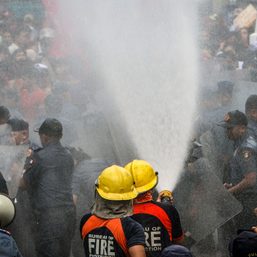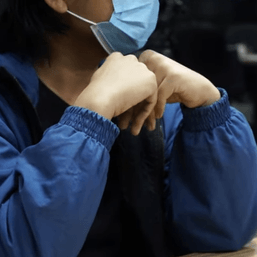SUMMARY
This is AI generated summarization, which may have errors. For context, always refer to the full article.

MANILA, Philippines – Families of victims of enforced disappearances on Wednesday, August 30, called on the Philippine government to step up its use of a landmark law that was meant to give justice and protection to victims.
The Anti-Enforced or Involuntary Disappearance Act was signed in 2012 under then-president Benigno Aquino III after at least 16 years of intense lobbying by human rights groups and families of victims. Authorities have, however, fallen short in implementing it.
Hailed as a first of its kind in Asia, the law makes the crime punishable with life imprisonment. It also seeks to provide assistance to victims, also called desaparacidos, and their families through reparations, among others. (READ: Poor law implementation denies desaparecidos justice)
The Families of Victims of Involuntary Disappearance (FIND) and Asian Federation Against Involuntary Disappearances (AFAD) said that the continued failure to properly enforce the law had led to more violations.
“Kung susuriin, patuloy ang dalas ng krimen sa kasalukuyang administrasyon [at] ito ay patunay ng pagwawalang bahala sa pagpapatupad ng batas na naglalayong protektahan ang mamamayan mula sa sapilitang pagkawala at parusahan ang mga nagkasala,” the two groups said.
(If you look at it, that the crime continues even under the current administration shows the neglect in the implementation of the law that seeks to protect citizens and punish those responsible.)
The statement was released to mark the International Day of the Victims of Enforced Disappearances, and signed by AFAD secretary-general Jose Faustino and FIND co-chairperson Louie Crismo, whose brother Romeo was abducted in 1980 while on his way to his teaching job.
An enforced or involuntary disappearance, according to the law, has three elements:
- A person is deprived of liberty via an arrest, detention, or abduction.
- The perpetrators are state agents or working with the state.
- There is a conscious effort to conceal information on the victim.
Nilda Sevilla, former FIND co-chairperson, previously told Rappler that the law is unique in the way it treats enforced disappearance “as a special or separate offense.” Sevilla’s brother, Hermon Lagman, was a labor lawyer who disappeared in 1977.
Data from FIND as of June 2023 shows that there are at least 2,078 documented cases of enforced disappearances in the country since Martial Law. Out of this number, 1,165 are still missing while 663 surfaced alive and 280 were found dead.
The dictatorship of Ferdinand E. Marcos recorded the highest number of victims with 1,032. His son and namesake, incumbent President Ferdinand Marcos Jr., marked his first year in office with 23 reported cases, according to FIND documentation.
FIND said no person had been held accountable for the recorded disappearances of 183 people since the law’s implementation in 2012.
Ratify UN convention too
Aside from the law, the families also urged the government to ratify the International Convention on the Protection of All Persons from Enforced Disappearances.
This United Nations instrument states that "no exceptional circumstances whatsoever, whether a state of war or a threat of war, internal political instability or any other public emergency, may be invoked as a justification for enforced disappearance." The convention entered into force in December 2010 and has been ratified by 70 countries so far.
As they long for justice, FIND and AFAD hope that the memories of desaparacidos are not forgotten, especially during the second Marcos president.
“Ang pagdadalamhati ng mga pamilyang naiwan ay patuloy hangga’t walang linaw sa kinahihinatnan ng kanilang mga minamahal na iwinala,” the groups said. “Araw-araw ring nagdurusa ang mga pamilya nang dahil sa marahas na epekto ng krimen na ito.”
(The mourning of families left behind continues as long as they do not know what happened to their loved ones. More and more people suffer the consequences of this crime.) – Rappler.com
Add a comment
How does this make you feel?






There are no comments yet. Add your comment to start the conversation.